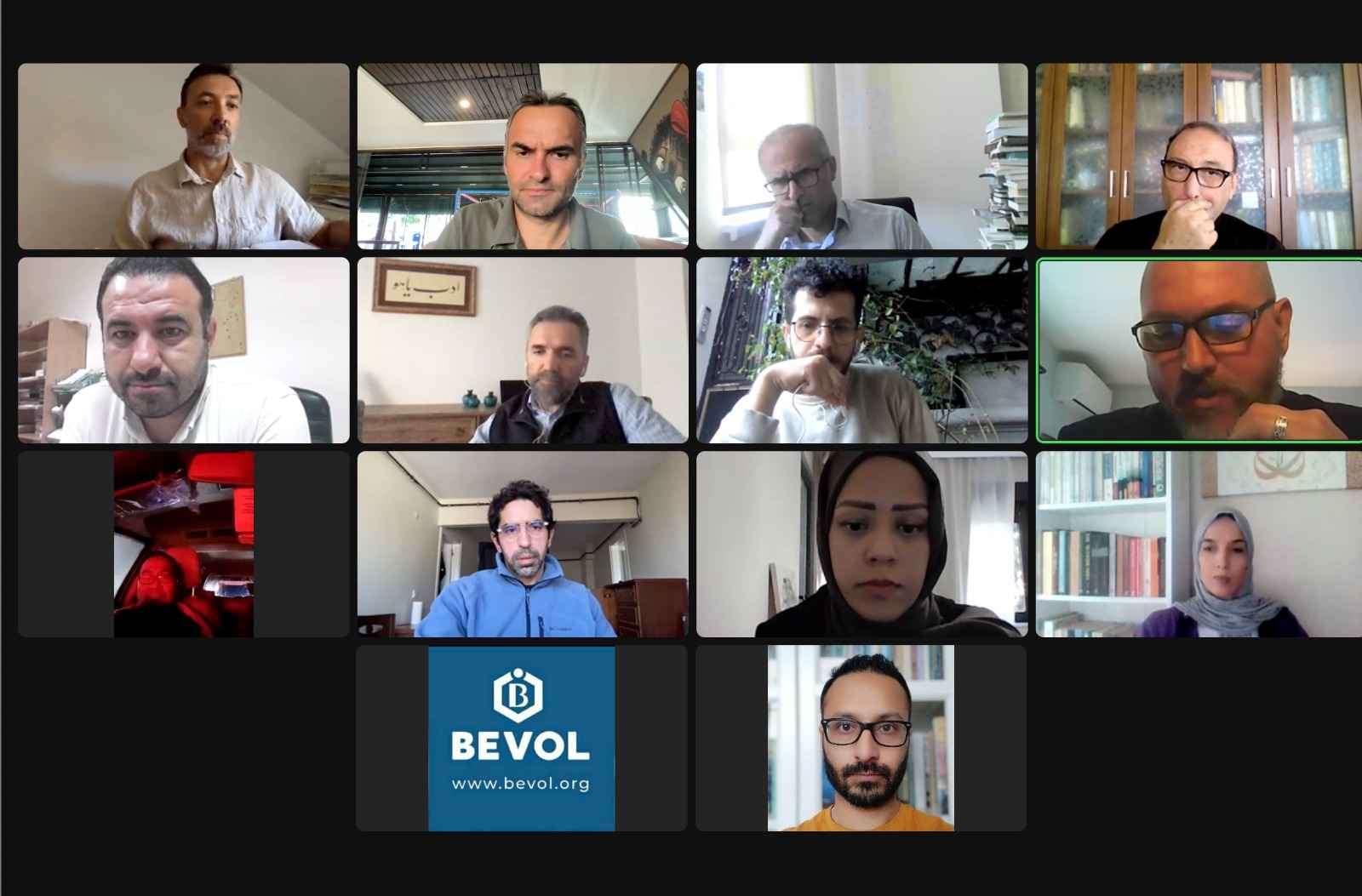


The Munazara and Argumentation Ethics Research Center organized an “E-workshop on Excavating Munazara Manuscripts” on September 23rd, 2022, via Zoom. Speakers in the event included Dr. Necmettin Pehlivan, Zafer Onur, Prof. Recep Şentürk, Dr. Walter Young, Dr. Safaruk Chowdhury, Dr. Syamsuddin Arif, Prof. Alparslan Açıkgenç, Dr. Mehmet Ali Üzelgün, Dr. Önder Küçükural, Dr. Rahmi Oruç, Dr. Maria Taiai, and Halima Bensaid. Below is a short glimpse of the workshop.
The program started with a brief introduction by Dr. Mehmet Ali Üzelgün about the workshop’s purpose and its significance for the ADAB project. The introduction was followed by welcome remarks by Prof. Recep Şentürk and Dr. Önder Küçükural. The workshop was organized in three sessions: The first was held in Turkish and the second in English. In the last, the participants were invited to a round-table discussion that revolved around the questions: “Which text to translate? Which criteria to use in selecting that text?”
Zafer Onur presented his work-in-progress for the Status Report that aims at locating Munāẓara Manuscripts in Turkey. Onur reported that he has so far located 126 individual manuscripts. After Zafer Onur’s presentation, Dr. Rahmi Oruç elaborated on the available Munāẓara translations: the available translations are beginner-level short epistles. Dr. Oruç stressed the need for intermediate and advanced-level Munāẓara works in English. He also pointed out the difficulty of selecting a text to translate, as Munāẓara books are generally quite theoretical. He argued that the ADAB project should aim for texts that would be more practical and suitable for a general audience. Therefore, the participants should consider the targeted audience in their suggestions. He suggested the translation of three works that he benefited from a lot in his dissertation:
1- Sājaqlīzāda’s Taqrīr al-Qawānin as an advanced-level book. He stated that the book is quite comprehensive in its approach.
2- Ṭāshkubrīzādae’s Sharh al-Risāla, i.e., the author’s commentary to his own epistle. The book is already critically edited and translated into Turkish by Berra Kepekçi.
3- al-Jaunpūrī’s Sharh al-Rashidiyya, a commentary on al-Risāla al-Sharīfiyya attributed to Jurjani
Dr. Necmettin Pehlivan started with a brief introduction about the discipline of Ādāb al-Baḥth wal Munāzara and the ADAB project’s significance in reviving it. He reminded the participants that there are two prominent schools in the literature: The jurisconsults and the logicians. Then he suggested translating Sājaqlīzāda’s Taqrīr al-Qawānin, as there is a consensus in the later literature that Taqrīr is written according to principles of the logicians. Sājaqlīzāda’s primary goal was to establish Munāzara as ‘ālat al-qānūn (canonical tool) in the sense that the discipline determines the universal rules of argumentation. He also stated that these context-independent rules could indeed serve as an alternative debate procedure that can replace existing debate protocols as Munāzara was developed for a wide range of areas, from scientific controversies to legal and religious matters. Furthermore, he reminded the audience that Taqrīr has already been critically edited and translated into Turkish by Yusuf Türker.
Dr. Walter Young agreed with Dr. Pehlivan on the need to separate Munāzara and Jadal books but he stated that we should also acknowledge that classical Jadal books like that of Abu Ishāq al-Shirāzi, Abu al-Walīd al Bāji, and al-Āmidi contain a great wealth of argumentative moves that are translatable out of their Islamic context for more general use. As for the most appropriate Munāzara book to translate, Young suggested al-Jaunpūrī’s Sharh al-Rashidiyya. He pointed out its historical prominence and prevalence as a course book in Southeast Asia. Dr. Young also suggested Prof. Asad Q. Ahmad be notified as some of his students in Berkeley had already studied the book in great detail.
Dr. Safaruk Chowdhury agreed with Dr. Pehlivan and Dr. Young on the importance of translating Sājaqlīzāda’s Taqrīr al-Qawānin and al-Jaunpūrī’s Sharh al-Rashidiyya and added a third suggestion, namely Gelenbevī’s epistle. Dr. Chowdhury stated that this book is unique in terms of its framework drawing on the main Munāẓara sources systematically and its emphasis on tawjīh.
Dr. Syamsuddin Arif agreed with the importance of translating Sājaqlīzāda ’s Taqrīr al-Qawānin and suggested considering Zakariya al-Ansari’s Fath al-Wahhāb fi-Sharh al-Ādāb which is used as a student manual at the intermediate level.
The e-workshop ended with a presentation of a glossary of Munāzara terms prepared by Dr. Maria Taiai and Halima Bensaid.